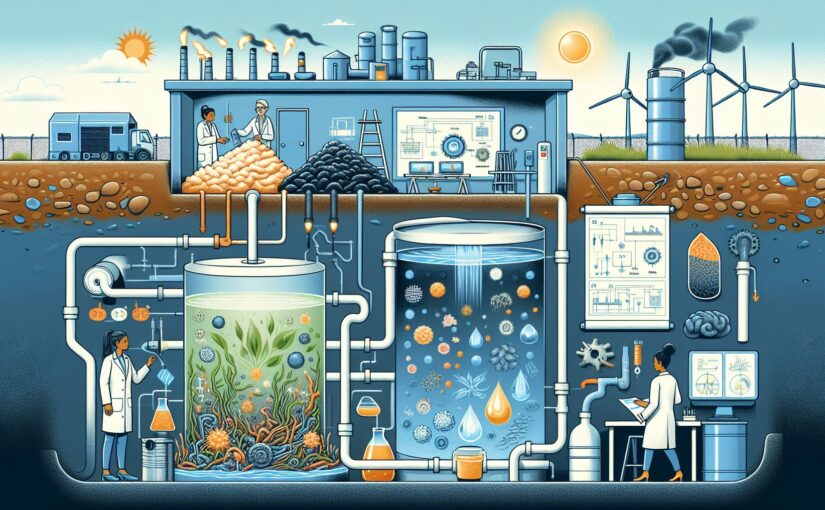Tackling the dual crisis of environmental sustainability and energy shortage, the exciting and evolving niche of producing renewable energy from wastewater is a very relevant area that merits exploration. This article delves into the journey of how the waste from our daily life undergoes transformations, leading to a cleaner environment and concurrently, producing energy [1].
An Untold Powerhouse
Untreated or poorly treated wastewater containing human excreta, food waste, and industrial effluents, create severe environmental pollution. Traditionally, they are perceived as mere challenges to manage. Today, however, the perspective has shifted to viewing this wastewater as a potential raw material for energy.
Each day, globally, billions of gallons of wastewater are produced, rich in organic compounds. With advanced technologies, these organics can be converted into renewable energy like biogas, hydrogen, bioelectricity, etc. This potential reservoir of energy has remained untapped so far, but innovative solutions are proving to be natural game-changers [2].
The Transformation Process
The process of deriving energy from complex organic materials involves microbial activity. These ‘miracle workers’ break down the waste and convert it into simpler fuels like methane, biohydrogen, or bioelectricity in a multi-step process.
- Hydrolysis: Large organic waste is broken down into smaller particles.
- Acidogenesis: These particles are transformed into volatile fatty acids by fermentative bacteria.
- Acetogenesis: Volatile fatty acids are converted into acetyl-CoA, an intermediate.
- Methanogenesis: The final step where methane is produced from acetyl CoA.
An interesting area within this process is the production of Bioelectricity through Microbial Fuel Cells (MFCs). MFCs are biological reactors where the chemical energy in wastewater is directly converted into electricity through bacterial metabolism.
Implications & Future Directions
Through advanced and sustainable methods like anaerobic digestion, microbial fuel cells, and microbial electrolysis cells, the energy embedded in wastewater can be successfully harvested [3]. It has the potential to bring a paradigm shift in how we approach wastewater.
As our focus transitions from mere wastewater treatment to energy production, the scientific community worldwide has led substantial research efforts. Pilot projects in the US, Europe, and Asia have also successfully demonstrated its feasibility at scale and commercial viability.
While the renewable energy derived from wastewater alone might not be able to replace our dependency on fossil fuels, it does contribute to the variety of renewable energy sources. Moreover, it adds to the circular economy, making our waste management more eco-friendly and efficient.
Conclusion
Turning wastewater into a source of renewable energy holds vast potential for revolutionizing our energy grid while solving our waste dilemma. This, combined with other renewable energy sources, could lead us into a green future. Embracing this multi-faceted approach could indeed light the path to a more sustainable world and ensure a better tomorrow for future generations.
